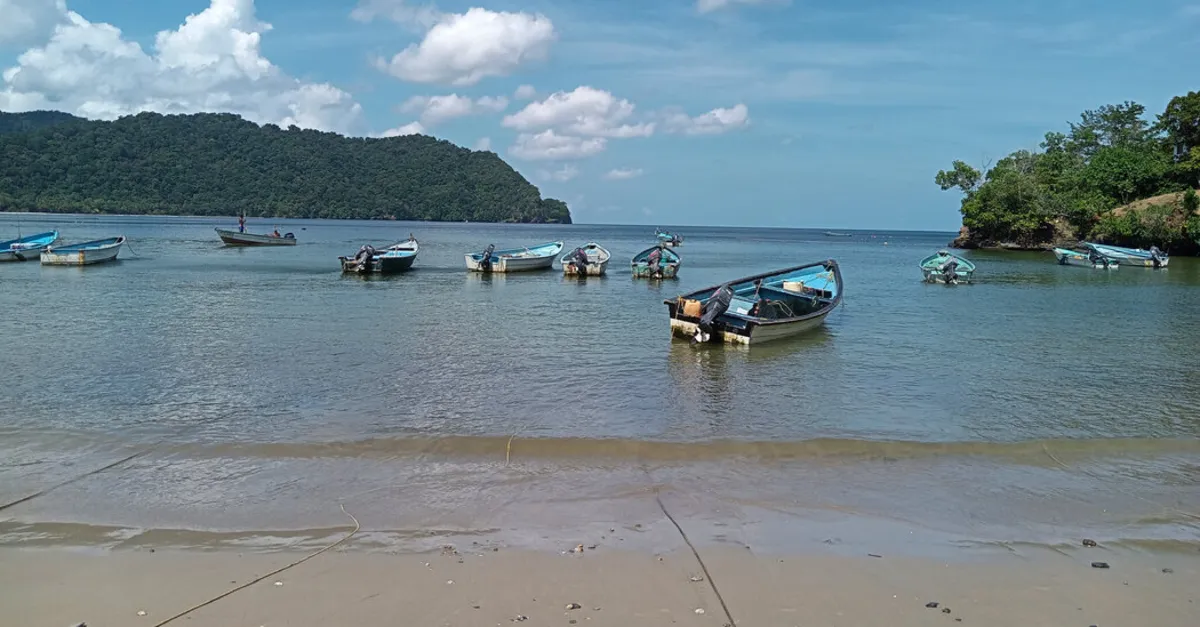
Chad Joseph, a 26-year-old from Trinidad and Tobago, had been residing in Venezuela for several months before informing his family of his plans to return home via a short boat ride. Unfortunately, he has not yet returned, prompting his family to fear for his safety. On Thursday, social media buzzed with reports suggesting that Joseph was one of six individuals aboard a suspected drug vessel that was reportedly destroyed by the U.S. military this week.
“I don’t want to believe that this is my child,” lamented his mother, Lenore Burnley, during an emotional interview. “Is this really true?” The situation has escalated, with the U.S. military claiming responsibility for the destruction of five boats allegedly involved in drug trafficking, resulting in the deaths of 27 individuals. Despite the rising death toll, authorities have yet to publicly confirm the identities of the deceased, leaving families to grapple with uncertainty fueled by rumors and social media speculation.
Chad Joseph’s family is reportedly the first to openly express their belief that a loved one has perished in the recent military action. His neighbor, identified only by the last name Samaroo, was also aboard the same boat and is currently missing. This adds to the distress of the situation, as Mr. Joseph’s aunt, Lynette Burnley, shared the family’s growing concern.
Trinidad and Tobago’s defense minister, Wayne Sturge, stated that he has not received any official confirmation regarding the nationalities of those aboard the vessel. The attack occurred in international waters, which limits the government’s jurisdiction for an investigation, according to Sturge.
The first military operation, which resulted in 11 fatalities, was announced by the Trump administration on September 2. Family and friends of the victims from the Venezuelan town of San Juan de Unare took to social media to mourn the deaths of eight individuals, although their surnames were not disclosed. However, local Venezuelan security forces quickly intervened, cutting off electricity and discouraging public discussion about the attacks.
A wife from Güiria, another coastal town in Venezuela, shared her tragic story with The New York Times under anonymity, revealing that her husband, a fisherman, went to work one day and never returned home. Experts suggest that the Venezuelan government has been suppressing information about these attacks to avoid escalating tensions with the United States, particularly amid a military buildup in the Caribbean aimed at increasing pressure on President Nicolás Maduro’s regime.
In a recent interview, Venezuela’s vice president, Delcy Rodríguez, stated that her government had no knowledge of the identities of the deceased individuals from the recent boat attacks. She remarked, “So far, not even their nationality is known.” Colombian President Gustavo Petro also indicated that there were signs suggesting that Colombians may have been among the casualties but did not confirm any identities.
Chad Joseph lived in Las Cuevas, a fishing village located an hour's drive from Port of Spain, the capital of Trinidad and Tobago, and was just an hour away from Venezuela by boat. His family revealed that he had been working as a fisherman and frequently traveled to Venezuela. However, the northern coast is notorious not only for fishing but also as a transit point for drug traffickers. Joseph’s family firmly denied any involvement in drug trafficking.
President Trump announced the latest military strike on Tuesday, claiming that six men had been killed, alleging they were involved in drug smuggling, yet providing no evidence to support this assertion. At least two of the destroyed boats were located near Trinidad, a recognized transshipment hub for Colombian cocaine that often passes through Venezuela. Legal experts have criticized these military actions as potentially illegal, arguing that the military should not intentionally target civilians, even if they are suspected criminals.
Traditionally, the U.S. Coast Guard, often in collaboration with the Navy, has been responsible for intercepting and boarding vessels suspected of drug smuggling, arresting crews if illicit cargo is discovered. The escalation of military tactics raises questions about accountability and the implications for international law and human rights.